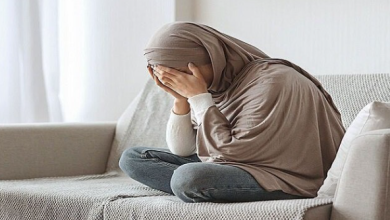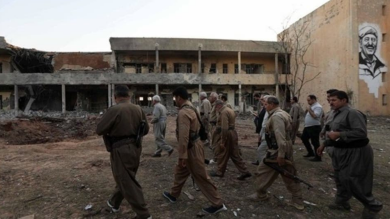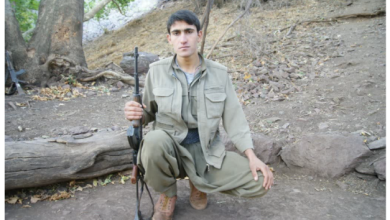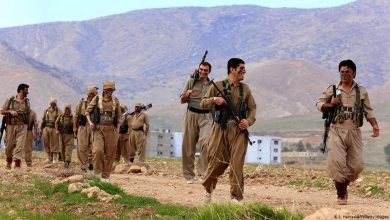Kowsar Mahmoudi, an adolescent from Javanrud, joined the armed organization PKK/PJAK at the age of 16 under the pressure of family issues and the deceptive promises of the group. Her experience highlights how false promises and the exploitation of personal vulnerabilities can drastically alter an individual’s life trajectory.
The affiliation of adolescents and women with armed and ideological groups is a multi-faceted phenomenon requiring analysis from psychological, sociological, and political perspectives. Individuals, particularly young women and adolescents, are more susceptible to recruitment by armed groups when they are in a state of psychological vulnerability. Factors such as family pressures, social restrictions, a feeling of powerlessness, lack of emotional support, and personal identity crises create fertile ground for accepting the groups’ alluring promises. These groups cultivate a sense of belonging and hope by offering an image of “support,” “freedom,” and “meaning for life.”
In societies where women and girls face severe social and cultural limitations, armed groups exploit structural weaknesses and gender discrimination. The promise of education, employment, financial independence, and personal security for women is often a mechanism to lure them into dangerous and violent activities. Furthermore, the absence of support networks and strong social institutions makes escaping or exiting the groups more difficult.
Armed and ideological groups typically operate in regions characterized by weak governance, internal conflict, and ethnic or border disputes. By exploiting legal loopholes and ineffective policies, these groups utilize adolescents and women as human resources and tools to advance their political and propaganda goals. In this context, promises of migration, security, education, and a better life are used as a tactic to deceive and control individuals.
The Life and Experience of Kowsar Mahmoudi
What factors led you to join the PKK group?
When I was sixteen, I was a high school student in Javanrud, living a normal life. However, my family forced me into an engagement with a much older man. This was a huge shock to me; not only did I lack a complete understanding of life and personal decisions, but I also felt I had no escape to control my own life. During that time, I met a person named Sarhad through the Tango social network. He introduced himself as a PKK member living in the UK. Aware of my circumstances, he managed to deceive me, promising that if I went with him and his group to a safe area, I would receive training and have the opportunity for a better life. He knew very well that I was in a difficult family situation, which made me feel like he was the only person who could help me.
What was the process of leaving Iran and being transferred to the group?
My younger sister, Shilan, who was 13 at the time, our cousin, Shahla, and I crossed the Baneh border illegally on March 15, 2016 (25/12/1394 in the Persian calendar), with the help of group members, and were taken directly to Qandil. At the time, we had no precise knowledge of the group’s true goals; we were only promised training and a better life. This journey was filled with fear and stress for us because we were not only separated from our home and family but were also forced to go to a place we knew nothing about.
What were the conditions for training and living in Qandil?
In Qandil, our first training phase was the general and ideological course. Classes were held there that were primarily political and ideological, gradually attempting to shape our view of the group and its missions. These classes and the teaching method had a significant effect on my morale, especially since I always tried to think independently. After the training period ended, they separated us. Due to my strong interest in journalism, I was transferred to the Journalism Academy. There, I received training that was intended to enable us to publish the group’s news and messages in different areas in the future, effectively becoming a “propagandist” and liaison for the group. After that, I was sent to Syria, to the city of Qamishli.
What was the experience of being in Syria and Qamishli like?
After the training, I was sent to Syria, to the Qamishli area. Initially, I thought this mission was an opportunity for service and real experience, but the reality was very different. The living conditions were harsh, stressful, and sometimes unbearable. In addition to the mental and emotional pressure, I also faced practical problems: severe restrictions on contact with my family, forced labor, and orders that constantly conflicted with my personal and human values created immense pressure.
How did the other members and commanders treat you?
The treatment was sometimes very humiliating. I witnessed many young individuals, especially girls, being harassed and threatened for non-compliance or protesting orders. Sometimes I suffered from this pressure myself. However, I tried to maintain my position and protect myself and others by learning and working hard in journalism tasks. Despite my genuine interest in media, observing the abuses and unfair treatment had a negative impact on my morale.
What factors led you to decide to escape?
After a few years, the living conditions and psychological pressures made me decide to find a way back at all costs. Along with a girl from the Turkish Kurds whose family cooperated with the Turkish intelligence organization, we managed to escape from Syria. The escape route was dangerous; we first went to Turkey, where we were interrogated for about a week and were held in Urfa prison for nearly 40 days. With contact from me and my family, and the support of my Turkish friend’s brother, I managed to cross the West Azerbaijan border into Urmia. After completing the legal procedures in Urmia, Javanrud, and Kermanshah, I returned to normal life.
What was the status of your sister and cousin?
My sister, Shilan, managed to escape and return to the country about a year later. However, I have no further news of my cousin, Shahla, and we don’t know what happened to her. The living conditions there and even the escape taught me that the effort to escape and return to a normal life, although difficult and dangerous, is possible, and there is hope for others to return as well.
What lesson or message does your experience hold for others?
My experience shows how armed and ideological groups can recruit individuals by deceiving and exploiting their personal problems and weaknesses. I hope my narrative serves as a warning to those in similar situations not to fall for the groups’ false promises and propaganda. My experience is now documented as memories and records, and I hope one day to be able to publish them so that others can also become aware of this perilous path.
Kowsar Mahmoudi’s experience demonstrates that armed and ideological groups, especially in border and vulnerable areas, recruit adolescents and women by exploiting personal issues and social limitations. This phenomenon:
- Constitutes a serious violation of the rights of children, adolescents, and women.
- Creates long-term psychological and social consequences for the victims.
- Highlights legal gaps and weak oversight of armed group activities in border and deprived areas.
Kowsar’s narrative also emphasizes the importance of raising awareness and education about human rights, establishing local support networks, and strengthening psychological and social support for at-risk individuals.






